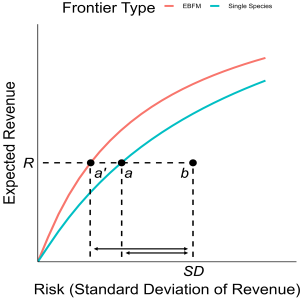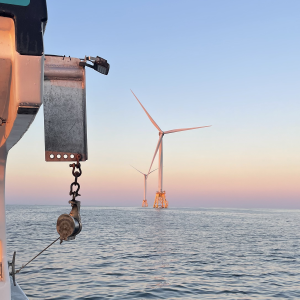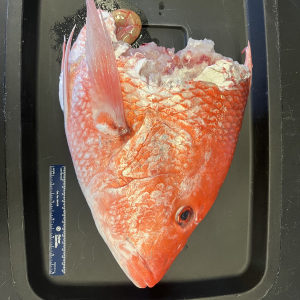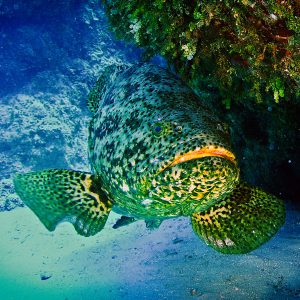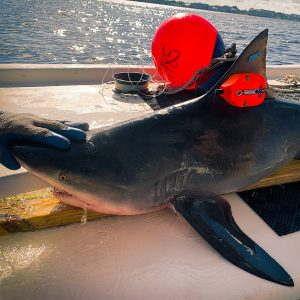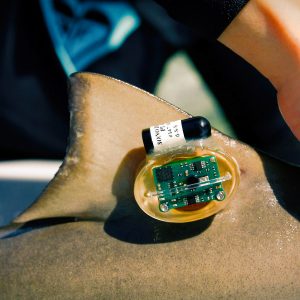
: About Me
I’ve loved water ever since I was a kid. Back in England, my parents used to struggle to get me out of the bathtub.
Fascinated by fish from a young age, I decided to pursue an undergraduate degree in marine and freshwater biology where I most enjoyed the fisheries and animal behavior classes.
During undergrad I took advantage of opportunities to gain field experience and well… I loved it! After completing my bachelors I went on to do my PhD through the University of Hull, UK and Bimini Biological Field Station, Bahamas. It was during my PhD that I developed an interest in quantitative analyses and machine learning.
Since then I have travelled to complete several post-doctoral fellowships in Australia (Mudoch University) and the US (Florida Atlantic University’s Harbor Branch Oceanographic Institute and University of Massachusetts Dartmouth School for Marine Science and Technology; SMAST). I’m currently an Assistant Research Professor at SMAST with interests in how anthropogenic activities and environmental variability can affect the ecology and physiology of fishes. The continued development and miniaturization of animal-borne tags provides an avenue to address important ecological and physiological questions pertaining to animals across a range of sizes and systems and can be even more powerful when used in tandem with other methods (e.g., passive acoustic monitoring, genetics, citizen-science such as working with fishermen).
My general research goals are to:
- Provide scientific data that can be used to inform fisheries management (through single species stock assessment or ecosystem-based fisheries management).
- Understand the spatio-temporal dynamics of fish and how this is impacted by anthropogenic interactions and climatic conditions (e.g., fishing, harmful algal blooms, storms, wind farms, etc.)
- Utilize and improve technological tools (e.g., animal-borne tags, respirometry) and their associated analytical methods to elucidate the fine scale behavior and physiology of wild fish.
Outside of research, I enjoy teaching, mentoring and engaging in activites that promote diversity, equity and inclusion in science.

: Publications
You can follow me on Research Gate and Google scholar
- Fadool BA, Bostick KG, Brewster LR, Hansell AC, Carlson JK, Smukall MJ. Using a Bayesian Framework to Predict Age and Growth Estimates for the Nurse Shark (Ginglymostoma cirratum) Over 17 Years in Bimini, The Bahamas (2024). Frontiers in Marine Science. doi:10.3389/fmars.2024.1265150
- Brewster LR, Ibrahim AK, Locascio J, DeGroot BC, Chérubin LM, Ajemian MJ. Seasonal dynamics and environmental drivers of Goliath grouper (Epinephelus itajara) sound production in the Gulf of Mexico (2023). Fishes 8.6: 293. doi:10.3390/fishes8060293
- Cahill BV, DeGroot BC, Brewster LR, Lombardo SM, Bangley CW, Ogburn MB, Ajemian AJ (2023). Visitation patterns of two ray mesopredators at shellfish aquaculture leases in the Indian River Lagoon, Florida. Plos one 18.5: e0285390. doi:10.1371/journal.pone.0285390
- Edwards ML, McCallister M, Brewster LR, Bangley C, Curtis T, Ogburn M, Ajemian MJ (2022) Multi-year assessment of immature bull shark Carcharhinus leucas residency and activity spaces in an expansive estuarine nursery. Mar Ecol Prog Ser 695: 125-138. doi: 10.3354/meps14113
- Brewster LR, Ibrahim AK, DeGroot BC, Ostendorf TJ, Zhuang H, Cherubin LM, Ajemian MJ (2021). Classifying Goliath Grouper (Epinephelus itajara) Behaviors from a Novel, Multi-Sensor Tag. Sensors. doi: 10.3390/s21196392
- Byrnes E, Lear KO, Brewster LR, Whitney NM, Smukall MJ, Armstrong NJ, Gleiss AC. (2021) Accounting for body mass effects in the estimation of field metabolic rates from body acceleration. J. Exp. Biol. 224 (7): jeb233544. doi:10.1242/jeb.233544.
- Brewster LR, Cahill BV, Burton MN…. M.J. Ajemian (2020). First insights into the vertical habitat use of the white spotted eagle ray Aetobatus narinari revealed by pop-up satellite archival tags. J. Fish Biol. doi:10.1242/jeb.146993.
- DeGroot B, Roskar G, Brewster LR, Ajemian MJ (2020). Fine-scale Movement and Habitat Use of White Spotted Eagle Rays, Aetobatus narinari, in the Indian River Lagoon. Endanger Species Res. doi:10.3354/esr01047.
- Lear KO, Whitney NM, Morgan DL, Brewster LR, Whitty JM, Poulakis GR, Scharer RM, Guttridge TL, Gleiss AC (2019) Thermal performance responses in free-ranging elasmobranchs depend on habitat use and body size. Oecol 191(4). 829-842. doi:10.1007/s00442-019-04547-1.
- Hounslow JL, Brewster LR, Lear KO, Guttridge TL, Daly R, Whitney NM, Gleiss AC (2019) Identifying optimal sampling frequencies for behavioural classification of accelerometer data. J. Exp. Mar. Biol. Ecol. 512: 22-30. doi:10.1016/j.jembe.2018.12.003
- Brewster LR, Dale JJ, Guttridge TL, Gruber SH, Hansell AC, Elliott M, Cowx IG, Whitney NM, Gleiss AC (2018) Development and Application of a Machine Learning Algorithm for Classification of Elasmobranch Behaviour from Accelerometry Data. Mar Biol. doi:101007/s00227-018-3318-y.
- Lear KO, Whitney NM, Brewster LR, Gleiss AC (2018) Treading water: respirometer choice may hamper comparative studies of energetics in fishes. Mar Freshwater Res. doi:10.1071/MF18182.
- Hansell, AC, Kessel ST, Brewster LR, Cadrin SX, Gruber SH, Skomal GB, Guttridge TL (2017) Local indicators of abundance and demographics for the coastal shark assemblage of the eastern waters of Bimini, Bahamas. Fish Res: 34-44. doi:10.1016/j.fishres.2017.09.016.
- Lear KO, Whitney NM, Brewster LR, Morris JJ, Hueter RE, Gleiss AC (2017) Correlations of metabolic rate and body acceleration in three species of coastal sharks under contrasting temperature regimes. J Exp Biol: jeb. 146993. doi:10.1242/jeb.146993.
- Brewster LR (2017) Behavioural Energetics of the juvenile lemon shark (Negaprion brevirostris) in Bimini, Bahamas. PhD thesis. University of Hull
Technical Reports
- Brewster LR, Edwards F, Link J, Cadrin SX (2023). Using Portfolio Theory to improve the management of living marine resources. A demonstration for South Atlantic Fisheries. Report to South Atlantic Fishery Management Council’s Scientific and Statistical Committee and Socioeconomic Panel.
- Brewster LR, Edwards F, Link J, Cadrin SX (2023). Using Portfolio Theory to improve the management of living marine resources. A demonstration for New England Fisheries. Report to New England Fishery Management Council’s Scientific and Statistical Committee.
- Hansell A, Alade L, Allyn A, Brewster LR, Cadrin S, Kerr L (2022). Spatio-temporal dynamics of American plaice (Hippoglossoides platessoides) in US waters of the northwest Atlantic. American Plaice Research Track Working Group.
- Hansell A, Brewster LR, McManus C (2022). Spatio-temporal dynamics of Spiny Dogfish (Squalus acanthias) in US waters of the northwest Atlantic. Spiny Dogfish Research Track Working Group.

: Presentations
Scientific
- Brewster LR, Fay G, Cadrin SX. Promoting marine science in historically marginalized groups with a high school internship. International Council for the Exploration of the Sea Annual Science Conference. September 2023.
- Brewster LR, Frey A, Cadrin SX, Hankowsky K, Rillahan CB, He P. Connectivity, Movement and Distribution of Fish in Offshore Wind Farm Areas. Poster. International Conference on Fish Telemetry. Sète, France. June 2023.
- Brewster LR, Edwards F, Townsend H, DePiper G, Link JS, Cadrin SX. Using Portfolio Theory to Improve the Management of Living Marine Resources. North American Association of Fisheries Economists (NAAFE) 2023. May 2023.
- Brewster LR, Edwards ML, McCallister MP, Ajemian MJ. Tracking young bull shark activity in a coastal lagoon with frequent harmful algal blooms. Ocean Sciences Meeting. Virtual. February 2022.
- Brewster LR. From Rivers to Reefs: Discovering the Behavioral Ecology of Large Predatory Fish Using Multi-Sensor Tags. FAU Marine Science Seminar. Virtual. October 2021.
- Brewster LR, Ibrahim A, DeGroot BC, Ostendorf TJ, Zhuang H, Chérubin LM, Ajemian MJ. Classifying Goliath Grouper (Epinephelus itajara) Behaviors from a Novel, Multi-sensor Tag. 7th Biologging Symposium. Virtual. October 2021.
- Brewster LR, McCallister MP, Ajemian MJ. Revealing Fine-scale Behavior of Bull Sharks in the Indian River Lagoon. Indian River Lagoon Symposium. Virtual. Feb 2021.
- Brewster LR, et al. First insights into the dive behavior of the white spotted eagle ray using pop-up satellite archival tags. FUSES. 24th July 2020.
- Brewster LR, DeGroot B, Ibrahim A, McCallister M, Locascio J, Chérubin LM, Ajemian MA. Advancing Understanding of Goliath Grouper Behavioral Ecology. Ocean Sciences Meeting, San Diego CA. 21st Feb 2020.
- Brewster LR. Using Bio-logging Tools to Decipher Behavioral Ecology and Energetics of Marine Predators. HBOI Science Seminar. 4th Oct 2019.
- Brewster LR, Chérubin LM, DeGroot B, McCallister M, Locascio J, Ajemian MJ (2019) A Novel Multi-Sensor Tag to Capture Behavioral Ecology of Large Groupers (Poster). Joint Meeting of Ichthyologists & Herpetologists, Snow Bird, Utah, US.
- Brewster LR, Whitney NM, Gruber SH, Guttridge TL, Elliott M, Cowx IG, Lear KO, Gleiss AC (2016) Accelerating Understanding of Field Metabolic Rates in Elasmobranchs. American Elasmobrach Society, New Orleans, Lousiana, US.
- Brewster LR, Gruber SH, Cowx IG, Elliott M, Whitney NW, Gleiss AC (2015) Reconciling lab based metabolic rate and field metabolic rate with special reference to the lemon shark, Negaprion brevirostris. Fisheries Society of the British Isles annual meeting. Biology, Ecology and Conservation of Elasmobranchs, Plymouth, UK.
- Brewster LR, Guttridge TL, Gruber SH, Gleiss AC, Whitney NW (2014) Accelerometery to Determine the Field Metabolic Rate of Marine Predators (Poster). The 5th Bio-logging Symposium. Strasbourg, France.
- Brewster LR, Guttridge TL, Gruber SH, Gleiss AC, Whitney NW (2014) Determining Metabolic Rate in Free-ranging Elasmobranchs by means of accelerometry. American Elasmobrach Society, Chattanooga, Tennessee, US.
- Brewster LR, Guttridge TL, Gruber SH, Gleiss AC, Whitney NW (2014) Quantifying Metabolic Rate in Free-ranging Elasmobranchs by means of accelerometry (2013) European Elasmobranch Association annual meeting, Plymouth, UK.
- Brewster LR, Guttridge TL, Whitney NW, Gleiss AC, Gruber SH (2013) The influence of temperature on activity level and behaviour for a juvenile elasmobranch species (Poster). American Elasmobrach Society, Albuquerque, New Mexico, US.
- Brewster LR, Guttridge TL, Whitney NW, Gleiss AC, Gruber SH. Derivation of metabolic rates in two top marine predators using accelerometry. Presented to undergraduate university courses (including The University of Miami, Coastal Carolina University, The University of Minnesota, The University of New Brunswick and Eckerd College, St. Petersburg), and monthly to new Bimini Biological Field Station volunteers and research experience groups.
Public
- From Rivers to Reefs: Revealing the Concealed Lives of Marine Megafauna. Atlantic White Shark Conservancy. April 2023.
- Intro to Sharks. Treasure Coast Elementary School. March 2022.
- Climate Change Symposium. Temple Beit Hayam in Stuart. November 2021.
- Institute for Learning in Retirement Presentation: “How do big fish spend their time?”. November 2021.
- South Fork Natural History Museum Shark Research Panel. Available here. August 2021.
- Harmful Algae and Bull Sharks. Save Our Seas Distinguished Speaker Series, Museum of Discovery, Fort Laurderdale, FL. Available here. April 2021.
- Radio interview. 2PR radio 2018. Australia.

: Teaching
Teaching Philosophy
I gained my initial teaching experience in an academic setting at Florida Atlantic University (FAU) where I was given the freedom to design and teach a graduate level class. During the development process I deliberated over my own undergraduate and graduate school experience, determining what inspired me as a student and identifying areas that I felt could have been improved. I simultaneously completed The Association of College and University Educators (ACUE) “Course in Effective Teaching Practices” which introduced me to many teaching tools and the supporting pedagogical scientific literature. These experiences have molded my teaching philosophy, which focuses on three core principles: 1) active learning within a supportive environment promotes critical thinking and engages students; 2) students should work toward meaningful projects; 3) students and instructors can learn and evolve together.
Promoting active learning. Research has demonstrated that requiring students to actively engage with course content, and their peers, promotes higher order thinking and knowledge retention (Davidson & Major, 2014). From the first day, class activities should reflect the level of student engagement that is expected throughout the semester and be designed to foster a sense of community that encourages all students to participate. Course content should be carefully selected to allow time for regular active learning activities; covering more content through traditional lecturing does not equal greater knowledge acquisition. Further, active learning strategies can have additional benefits (e.g., promoting self-esteem and developing interpersonal skills) that are central to career progression. I aim to include active learning strategies that allow students to pursue avenues—within the scope of the class—that are relevant to their graduate work, while simultaneously aligning these activities with course outcomes. For example, during a think-pair-share session, students were required to discuss and present their perceptions of the most important applications of bio-logging (animal tagging). One student from each pair was then called upon (promoting individual accountability) to present their ideas. As the students had diverse interests, ranging from oceanography to animal health, this promoted an engaging, multifaceted group discussion.
Students should work toward meaningful projects. A common complaint I hear from students is having to enroll in courses they perceive as having no long-term value to them. I try to design class activities and assignments so they promote development of meaningful career-related skills. Highlighting the importance of these skills when an activity or assignment is set, helps increase student motivation and satisfaction. For example, the chief assignment for the course I designed included writing a manuscript, in pairs, on which the students were graded. On the first day of class the students were informed that a class outcome was to combine the best parts of their manuscripts to form the basis of a peer-reviewed publication. The students were invited to be co-authors on the publication if they met the stipulated requirements. This assignment allowed opportunities to: discuss ethics of authorship contributions, work collaboratively, identify pertinent research questions, develop analytical skills, peer-review each other’s work and be involved in the manuscript submission process. While the topic of the paper itself was not directly relevant to every student’s graduate work, they gained experience pertinent to their professional development. This resulted in exceptionally positive student feedback at the end of the class and was reflected in their individual grades.
Students and instructors can evolve together. Research indicates that soliciting feedback throughout the semester can improve student learning, enhance motivation and positively alter student attitudes towards even the most challenging classes (Davis, 2009). I request that all students complete three anonymous surveys throughout the semester. The pre-semester survey allows me to understand their background and expectations for the class, so that I can tailor it where possible and address any misconceptions from the outset. This is particularly important as research demonstrates that student motivation, and thus grades, can be influenced by their experience on the first day of class (Nilson, 2010) and that students learn best when they know what is expected of them. The mid-semester survey allows me to obtain feedback on which teaching methods work best for them so that I can adjust accordingly during the semester. This simultaneously provides an opportunity for me to improve my teaching and demonstrates my interest and concern for their learning, resulting in positive attitudes towards the course and improved grades. Finally the end-of-course evaluation allows me to make adjustments to the course and refine my teaching for the future.
Teaching is a skill that can continually evolve. I strive to improve my teaching ability by finding evidence of what has and has not worked for my students through feedback mechanisms—such as surveys and course assessments—and reflection on student achievement (e.g., analysis of assignment or test results). I put the students at the center of their own learning by using active learning techniques appropriate to the class-size (e.g., think-pair-share, jigsaw, peer review: divide and conquer, polls). By endeavoring to design class activities and assignments that are not only well aligned with the course outcomes but can effectively engage the most timid or underprepared student, I believe all students can benefit.
Teaching Experience
2023: Introductory Fisheries Science (MAR 540). SMAST.
2022: Lecturer: “Biologging in Marine Fisheries Management”. Marine Fisheries Ecology Management (OCB 6715C-001). FAU-HBOI.
2020: I developed a new graduate level course that I co-instructed with Dr. Matt Ajemian at FAU-HBOI, entitled “Bio-telemetry & Bio-logging Technology”. (BSC 6936; Graduate class; Spring 2020). The student comments below indicate that this class was extremely well received.
2020 & 2019 Guest Lecturer: “Animals as Oceanographers”. Marine Science and Oceanography, Bio Oce (OCE 6057; Graduate class). FAU-HBOI.
2019 Guest Lecturer: “Revealing the Lives of Concealed Animals: An Introduction to Bio-logging”. Marine Science Seminar Series. (Graduate class)
Teaching Assistant: FIO Field Methods Graduate Course, HBOI course weekend (Graduate class). FAU-HBOI.
Examples of student feedback
“This course was absolutely exceptional. EVERY SINGLE MSO STUDENT SHOULD TAKE THIS COURSE, regardless of whether they have a need for a background in biotelemetry. This course is so much more than that, and if they take this course early in their coursework (year 1, especially pre-proposal), they will put out work for their thesis that is VASTLY improved for having had this course. I repeat: EVERY STUDENT SHOULD TAKE THIS COURSE! The topic of biotelemetry was covered well and in an interesting and engaging format. The things I am most impressed with about this course are the ‘side effects’ of taking it. The way our coursework was structured caused us to have multiple opportunities to practice our presenting skills, got us all familiar with writing a major scientific paper such as could be submitted for publication, and got us loosely familiar with a conference style presentation for a ‘proposal’. For this course we were forced (but in a good way) to become familiar with Mendeley (which I had not used up until this point), handling data using R (which I DEFINITELY had not used at this point), and ArcMap and GIS (which I really needed practice with). It also allowed us some practice in reviewing other students’ work, which was very interesting and helpful. This class has given us the opportunity to do some collaborative work in teams and as well as solo presentation work. One of the coolest things about this course was the ability to collaborate with and have real discussions with our instructors. Dr. Brewster and Dr. Ajemian were approachable and helpful, gave good feedback, chose engaging course materials and methods of conveying them, and treated us all like real scientists. They also taught little sections on things like ethics when working with collaborators and what qualifies a contributor for authorship – things we really need to know as young professionals starting out! I feel MUCH more prepared because of the hands on, real world experience they have given in this course.”
“This course has given us experience with various software, introduced us to professionals who are well into their careers and just starting off and given us opportunities to have our own opinions and ideas. I have really enjoyed it! I have also had 2 or 3 other courses that aimed to have a publishable article written by the end of the semester. That is very exciting for a graduate student but unfortunately, those published pieces never were brought together. I really appreciate that this course has given us guidance on how to properly analyze the data and put together an article. I think this will be the first class that I have taken where an article is successfully produced. Finally, I like that this course has a field component. I had no experience with telemetry tools before this class, so having the opportunity to see what they look like, feel like, and how they are implanted made learning about these tools even more exciting.”
“I loved the nontraditional aspect of teaching. This really made me immerse myself more into the content of the class and less about the stress associated with grading. I also really loved the field trips that were made available even though two of them were not able to be done due to the pandemic.”
“I really enjoyed how interactive this class was. Dr. Brewster and Dr. Ajemian included a lot of opportunities for the class to discuss various topics and provided a lot of different opportunities to learn new content. They included lessons in R, GIS, and in some ways, how to be a scientist (ethics of tagging, designing studies, data analysis, etc). I think this has been the most valuable class I have taken thus far in grad school. Additionally, I really appreciate the thorough feedback along the way. I never felt like the assignments were a waste of time and just overall really appreciated the amount of time and effort that went into designing this class. Also, I really enjoyed all of the guest lecturers along the way! They all provided valuable insight to the variety of applications of biotelemetry.”
“I think this class was an extremely valuable opportunity to learn so many things. Even though this class is considered a ‘Special Topics’ class, I would really like to see this be considered within the normal curriculum. Great job, Dr. Brewster and Dr. Ajemian!”
“The fact that this course has gone over so well the first time out of the gate is astonishing. It was very well thought out and very well executed and obviously a lot of thought was given to the ways in which this class would actually benefit the students as opposed to ‘we have a topic, how do we convey it?’ All in all, this was a very sophisticated and exciting course and I feel that I have gained experience and information at a very high value. Dr. Brewster and Dr. Ajemian have had a stroke of brilliance with this course. They are to be highly commended for their efforts. And for goodness sake, don’t stop offering this course.”
Student Advisement
2022–current: University of Massachusetts Dartmouth, PhD Student, A. Frey
2022–current: University of Massachusetts Dartmouth, PhD Student, F. Edwards
2022–current: University of Massachusetts Dartmouth, PhD Student, S. Merhoff
2022–current: Florida Atlantic University, PhD Student, C. Morgan
2019–2021: Harbor Branch Oceanographic Institute, MS, M. Edwards
2020: Harbor Branch Oceanographic Institute, Summer Internship Program. K. McColluch
2019: Harbor Branch Oceanographic Institute, Summer Internship Program. E. Mullen
2018: Murdoch University, Perth, WA. BS, J. Hounslow, C. Norris (Honors thesis)

: Awards
GRANTS & AWARDS
- 2022 NOAA/NMFS Bycatch Reduction Engineering Program FY22 (Co-PI)
- 2021 NOAA/NMFS Co-operative Research Program FY21 (Co-PI)
- 2021 Mote Scientific Foundation
- 2020 Save Our Seas Foundation Small Grant
- 2017 Endeavour Research Fellowship
- 2016 Prof Roland Ennoes Research Fund
- 2016 University of Hull Conference Travel Fund
- 2015 Fisheries Society of the British Isles Student Bursary
- 2014 American Elasmobranch Society Student Travel Award
- 2013 European Elasmobranch Association Student Travel Award
- 2012–2015 Bimini Biological Field Station Foundation Fellowship
- 2008 University of Hull Academic Achievement Scholarship

: Contact me
LET’S TALK
Please get in contact, if you require more information about the work I am involved in.




